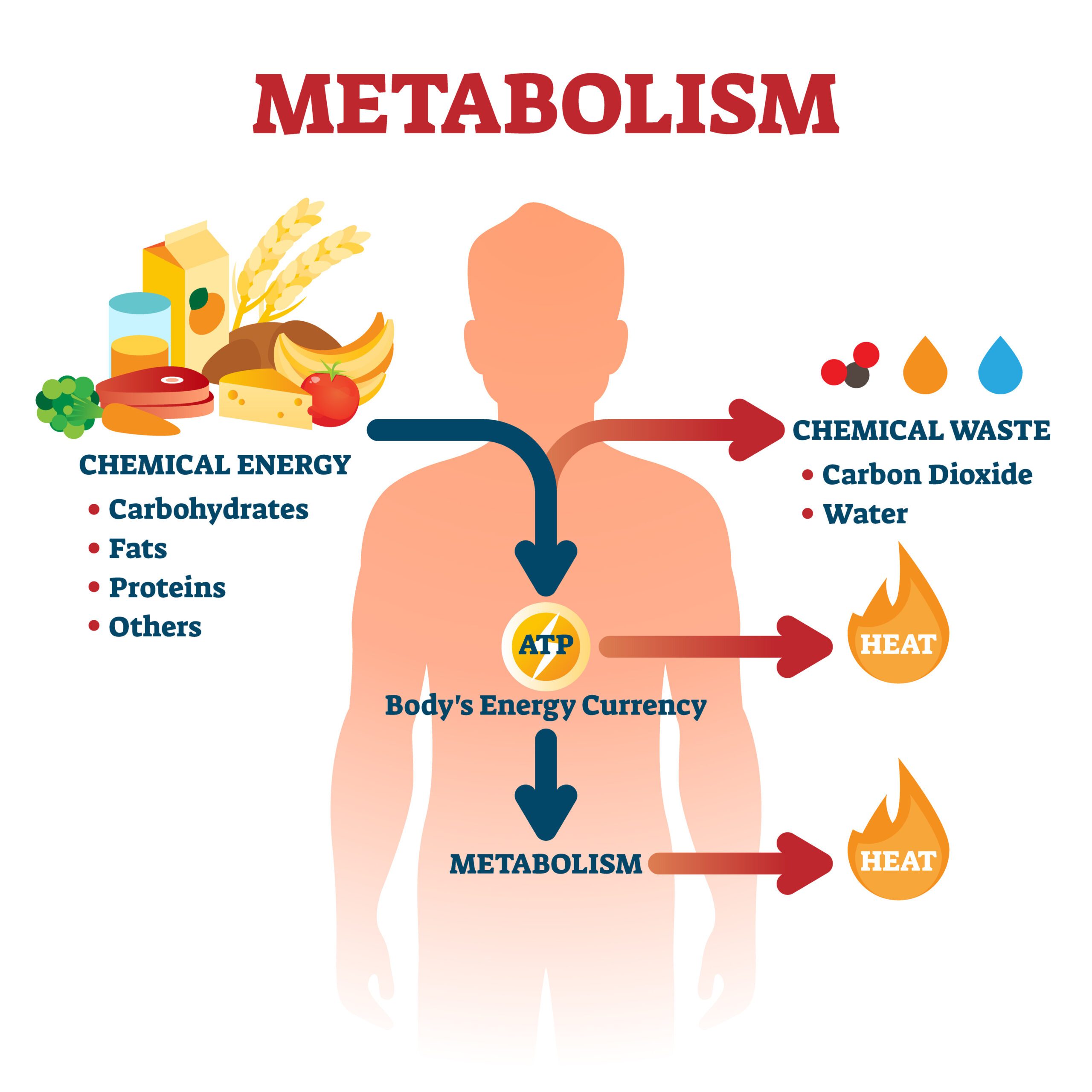Understanding the Weight Loss Divide: Why Some People Struggle More
July 3, 2023
 705
705 
Written By: Jack Riess NASM Certified Personal Trainer and Life Long Researcher of Health and Longevity.
When it comes to losing weight, you’ve probably heard the saying “one size does not fit all.” That’s because weight loss is a complex process, influenced by a variety of factors that vary significantly from person to person.
It’s like trying to run a race, but everyone starts from different points, with distinct pairs of shoes, unique physical abilities, and their own set of obstacles along the path.
Therefore, understanding the nuances of weight loss and why it’s a different journey for everyone is not just a fascinating subject, but a crucial one for those striving to lead healthier lives.
We are often quick to judge, attribute weight loss struggles to lack of willpower or discipline, but the reality is so much more complex.
Unveiling the layers behind why some people might find it harder to lose weight than others is a key step in fostering empathy, promoting effective strategies, and, importantly, preventing weight stigma.
In this blog post, we’ll explore the intricate landscape of weight management, peeling back the layers on how genetics, metabolism, lifestyle, and psychological factors can all play a part in the weight loss journey.
Our aim is to provide insights that can help each one of us appreciate and better navigate our unique path towards health and wellbeing. S
o, let’s embark on this journey together, fostering understanding, and reminding ourselves that every journey, much like every individual, is unique in its own special way.
The Role of Genetics in Weight Management

When we think about why we look the way we do – why we have our mother’s eyes or our father’s smile – we often talk about genetics.
Genetics, in the simplest of terms, is like the secret recipe of instructions that makes us who we are.
These instructions, passed down from our parents, are written in a complex code called DNA.
DNA influences everything from our hair color to our height, and yes, it also plays a significant role in determining our body weight.
Imagine our bodies as a fleet of ships, where genetics acts as the underlying blueprint.
These blueprints dictate the shape, size, and functionality of each vessel.
Similarly, our genetic makeup significantly influences our body size, shape, and how we manage weight.
Some of us are genetically predisposed to be more muscular, while others might carry more fat. This doesn’t mean our fate is sealed by our genes, but they do lay the groundwork.
In recent years, scientists have made substantial headway in understanding how genetics impact weight.
A study published in The American Journal of Clinical Nutrition found that genetic variants can influence obesity by affecting appetite, metabolism, and the distribution of body fat.
Another report in the journal Nature Genetics identified over 250 locations in our DNA that are linked to obesity.
One notable example is the FTO gene, often dubbed the ‘obesity gene’, which has been found to have a strong correlation with obesity in numerous studies.
People with certain variants of this gene have a higher risk of obesity because they tend to feel less full after eating and may crave high-calorie foods more often.
Yet, it’s essential to remember that genes aren’t destiny.
They merely set the stage; they don’t write the entire script.
While genetics can predispose us to gain weight more easily, it doesn’t mean we’re destined to be overweight. Genetics loads the gun, but lifestyle pulls the trigger.
Understanding our genetic predispositions can empower us to make informed lifestyle choices that better align with our bodies’ unique makeup.
While the role of genetics in weight management is undeniable, it is one of the many actors in the intricate play of weight loss.
Recognizing this helps us appreciate the individual struggles each person may encounter on their weight loss journey, reminding us that the road to a healthy weight isn’t a straight line, but a winding path unique to each individual.
The Effect of Metabolism on Weight Loss

In our quest to understand weight loss, another crucial piece of the puzzle is metabolism.
Simply put, metabolism is the process through which our bodies convert the food we eat into the energy we need to live.
It’s like the engine in a car that turns fuel into motion, helping us to do everything from running a marathon to blinking our eyes.
The speed of this conversion process, often referred to as our metabolic rate, can significantly influence our weight.
If you imagine your body as a car again, some people have engines that naturally run faster, burning through fuel more quickly – this is a fast metabolism.
On the other hand, those with a slow metabolism burn fuel more slowly.
Having a fast metabolism often means that the body uses up calories more quickly, which can make gaining weight more difficult and losing weight easier.
On the contrary, a slow metabolism burns fewer calories for the same amount of activity, which can make losing weight harder.
Imagine two friends, Alex and Bailey.
They eat the same meals, exercise the same amount, and lead similar lifestyles.
But Alex seems to be able to eat a chocolate chip cookie without gaining a pound, while Bailey feels like they gain weight just by looking at it.
The culprit behind this mystery could be their differing metabolic rates.
Alex, with a faster metabolism, burns those cookie calories at a quicker rate than Bailey, who has a slower metabolism.
Research has shown that numerous factors can affect metabolic rate, including age, muscle mass, and, yes, genetics.
That’s right, our friend genetics shows up here too.
Some people are genetically predisposed to have a faster metabolism, while others might naturally have a slower one.
But don’t fret if you’re more like Bailey than Alex.
There are ways to boost your metabolism, such as building muscle through strength training or ensuring you’re eating enough to fuel your body properly.
Remember, while a slow metabolism can make weight loss more challenging, it doesn’t make it impossible.
In essence, metabolism plays a key role in weight management.
It is another layer of the intricate weight loss puzzle, highlighting why weight loss isn’t a straightforward process but varies from person to person.
The better we understand our metabolism, the more effectively we can work with it, not against it, on our individual weight loss journeys.
Lifestyle Factors Impacting Weight Loss

In the grand tapestry of weight management, lifestyle factors make up some of the most vibrant and adjustable threads.
These factors include aspects like our diet, physical activity, sleep habits, and stress levels.
They are the day-to-day choices we make and circumstances we find ourselves in, playing a considerable role in our overall health and weight.
Think about your body as a complex machine that needs the right fuel and maintenance to function optimally.
The food we consume serves as this fuel.
A balanced, nutrient-rich diet fuels our bodies efficiently, ensuring all the parts work harmoniously and making weight management easier.
On the other hand, diets high in processed, high-calorie foods can lead to weight gain and disrupt our body’s harmony.
Physical activity is another cornerstone of healthy weight management.
Exercise helps us burn calories, build muscle, and boost our metabolism. It’s like giving our body’s engine a tune-up, ensuring it runs more efficiently.
But it’s not only about burning calories; regular physical activity also aids in maintaining lean body mass, improving mental health, and regulating bodily functions – all beneficial for weight management.
In our bustling lives, we often overlook two crucial, yet under-recognized lifestyle factors: sleep and stress.
Think of sleep as the body’s time for rest and repair.
When we’re sleep-deprived, our bodies produce more of the hunger hormone ghrelin, leading to increased appetite, and less of the satiety hormone leptin, making us feel less full.
So, not getting enough sleep could make us reach for that extra donut.
Stress, on the other hand, is like throwing a wrench in our body’s machinery.
Chronic stress can lead to hormonal changes that trigger increased appetite and cravings for high-calorie comfort foods.
Plus, when we’re stressed, we may be less likely to make healthy lifestyle choices, like exercising or cooking a nutritious meal.
However, the great thing about lifestyle factors is that they’re largely within our control.
By making healthier choices, we can influence these factors to work in our favor.
Whether it’s incorporating more fruits and vegetables into our diets, exercising regularly, prioritizing good-quality sleep, or finding healthy ways to manage stress, small lifestyle changes can make a big difference in our weight management journey.
In conclusion, lifestyle factors are a critical part of the weight loss equation.
They represent the choices we make and the environments we live in, both of which have a significant impact on our weight.
Understanding these factors allows us to create more effective, personalized weight loss strategies, again highlighting the unique and multifaceted nature of weight loss.
Emotional and Psychological Factors

In the symphony of factors that contribute to our unique weight loss journeys, emotional and psychological factors compose a significant melody.
These are the unseen influencers, the feelings and thoughts that can subtly shape our behaviors and decisions related to food and physical activity.
Just like physical health, mental health plays an integral role in our overall wellbeing, including weight management.
Conditions like stress, depression, anxiety, and other mental health issues can significantly impact our weight.
Picture emotions as the weather in our minds, sometimes calm and clear, other times stormy and unpredictable.
These emotional weather patterns can greatly influence our eating habits.
For instance, when we’re stressed or anxious, our bodies produce a hormone called cortisol, which can stimulate appetite.
This physiological response can make us reach for comfort foods, often high in sugar, fat, and calories, as a form of self-soothing.
This phenomenon is known as emotional eating, and while it may bring short-term relief, it can lead to long-term weight gain if it becomes a habitual response to stress.
Depression can also influence weight, although its effect can go both ways.
Some people may lose their appetite and unintentionally lose weight, while others might eat more and gain weight.
Depression can also lead to decreased motivation, making it harder to maintain regular physical activity or prepare healthy meals.
These emotional and psychological factors underline the importance of mental wellbeing in weight management.
Our minds and bodies are interconnected, and to achieve and maintain a healthy weight, we need to take care of both.
This could mean incorporating mindfulness practices, such as meditation or yoga, seeking therapy or counseling, or simply talking about our feelings with supportive friends or family.
We also need to shift our mindset towards weight loss, viewing it not as a quick fix, but as a long-term commitment to overall health.
It’s not just about the numbers on the scale, but also about nurturing a healthier relationship with food, cultivating body positivity, and acknowledging that our self-worth is not defined by our weight.
In summary, emotional and psychological factors serve as important reminders that weight loss isn’t solely a physical journey, but also a deeply personal and emotional one.
Recognizing these influences can help us better navigate the path to healthy weight management and understand why weight loss can be a different challenge for different people.
The key takeaway is that achieving a healthy weight is not just about diet and exercise, but also about taking care of our mental and emotional health.
How To Address These Challenges: A Multifaceted Approach to Weight Loss

Tackling the complexities of weight loss requires a multifaceted approach, much like solving a Rubik’s cube.
It’s not just about one color (or factor), but about aligning all the colors together in harmony.
Understanding that each person’s weight loss journey is influenced by unique genetic, metabolic, lifestyle, and psychological factors, it’s clear that individualized weight loss plans are paramount.
A ‘one-size-fits-all’ diet or exercise regime is unlikely to be effective for everyone. Instead, strategies should be tailored to each person’s unique circumstances, preferences, and needs.
Healthcare professionals play a crucial role in this tailored approach.
From dietitians and nutritionists who can provide personalized dietary guidance to therapists who can offer strategies for managing emotional eating or stress, a team of health professionals can provide the necessary support for a successful weight loss journey.
Most importantly, let’s foster understanding and empathy towards those embarking on their weight loss journey.
Recognize the courage it takes to make these changes and appreciate the complex factors that make each journey unique.
You got it!
As we’ve navigated the intricate landscape of weight loss, we’ve uncovered how genetics can set the stage for our body’s predispositions, how metabolism can influence the pace of our weight management, how lifestyle factors represent the choices we make, and how emotional and psychological factors interconnect our mental health with our physical health.
This exploration serves to highlight the complexity of weight loss, underlining that it is not a simple journey, but one fraught with individual challenges and nuances. It reinforces the importance of understanding, empathy, and personalization in our approach to weight management.
We hope that this discussion has provided valuable insights and fostered a deeper understanding of why weight loss is a different journey for everyone. As we conclude this exploration, we’d love to hear your thoughts.
What has been your experience with weight loss?
What challenges have you faced, and how have you overcome them?
Let’s continue this important conversation, nurturing a space of understanding, empathy, and shared learning.
Remember, each person’s weight loss journey is as unique as they are, a story that’s written one day at a time.
Here’s to celebrating these individual stories, the triumphs, the struggles, and the determination that drives us forward towards healthier, happier lives.
Learn about the newest breakthrough in natural weight loss. CLICK HERE to be one of the first to discover this “Weight loss Side Kick” that has no negative side effects.

A new study suggests that a widely used sugar substitute found in diet sodas, chewing gum, and low-sugar yogurt may elevate insulin levels. This could increase the long-term risk of heart disease. “Artificial sweeteners have infiltrated nearly all types of food, making it crucial to understand their long-term health effects,” said Yihai Cao, senior author […]

Diet Coke has long been a fan-favorite among soda lovers who want a fizzy, guilt-free alternative to traditional soft drinks. While its zero-calorie, zero-sugar label makes it seem like a healthier option, the reality is far more concerning. Despite its undeniable popularity, Diet Coke’s nutritional profile has raised red flags among health experts for years. […]

New study shows that embracing an anti-inflammatory, plant-forward diet can support cognitive function and help reduce the risk of dementia. What You Eat Shapes Your Brain The food you eat doesn’t just impact your body—it also affects your brain. Research suggests that eating an anti-inflammatory, plant-based diet can help improve memory, focus, and overall brain […]